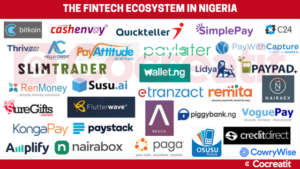Nigeria’s digital payments ecosystem in the last year has been described as an awakened “sleeping giant” playing the role of a catalyst in contributing to the rapid increase in the continent’s mobile money accounts.
With 50m newly registered mobile money accounts in 2019, Sub-Saharan Africa is described as the epicentre of mobile money. The report took into cognisance the contribution of the various regions with East Africa contributing 22m new accounts, West Africa 21m, and Central Africa six million.
In the new report by Global System for Mobile Communications commonly referred to as GSMA, Nigeria in 2018 was identified as one of Africa’s sleeping mobile money giants. Home to the continent’s largest adult put at 114m and an unbanked population at 60 per cent, is also showing potential for the roll out and adoption of mobile money services.
Pan to 2019, just a year later, and there is a notable traction in Nigeria’s payment space, primarily through the emergence of app-based wallets. Growing investments in this area has been complemented greatly by significant smartphone penetration, which has seen a hike at 40 per cent from 12 per cent in the last five years.
Commending the improvement, the report was quick to identify the roles played by investors and strategic partnerships entered into and sealed by a number of Nigeria’s leading fintechs such as Interswitch, Flutterwave and Opay who have benefitted from investors’ funding and support. It also considered what would be if Nigeria’s fintechs seek move to hubs outside Nigeria’s commercial hub, Lagos.
The report said, “In November (2019), Nigerian-based Interswitch became one of Africa’s most valuable fintechs after Visa joined a host of investors to take a minority stake in the company, which is now valued at $1bn. [The year] also saw a strategic partnership between online payment company, Flutterwave, and China’s Alipay, which is effectively connecting Africa’s entrepreneurs to over one billion Chinese customers.
“As these and new fintechs scale, the question remains whether they will acquire customer segments outside Nigeria’s urban and tech-savvy hubs like Lagos. Over-indexing on the country’s smartphone users will continue to exclude the unbanked, many of whom are more likely to have access to feature phones.”
With more investments into the ecosystem via the introduction of Payment Service Banks, the ecosystem only looks brighter considering the leverage operators like the mobile network service providers will be relying on. MTN, through a subsidiary, was noted to have begun offering mobile money transfers through its dedicated network, weeks after receiving a super-agent licence.

“The current foothold and subscriber base of these MNOs put them in a strong position to rapidly scale mobile money services, including underserved parts of the country and among feature phone users.
“Meanwhile players such as Opay and PalmPay have entered the market with strategies focused on both tech-savvy and underserved customers. Opay raised $170m, founded by Chinese-owned consumer internet company, Opera, and backed by nine Chinese investors. After launching a super app strategy very similar to GoJek in Indonesia, Opay is now expanding its services to offer payments via a Unstructured Supplementary Service Data channel and target feature phone users.”
According to the report, PalmPay also raised $40m in capital from China-based device maker, Tecno, as well as NetEase and MediaTek. This partnership provides PalmPay access to Tecno’s online and offline distribution networks, through pre-installing the app on all Tecno phones and converting Tecno retail stores to agents.
The report now looks at which of the platforms – fintechs or mobile money – lead Nigeria’s drive to digitised payments growth and sustainability.
It also looked into the roles of mobile money agents and how they will be contributing further to sustain the drive of the platform providers


